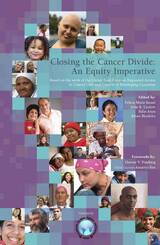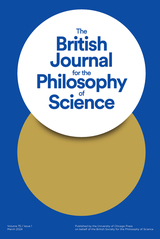
Felicia Knaul, an economist who has lived and worked for two decades in Latin America on health and social development, documents the personal and professional sides of her breast cancer experience. Beauty without the Breast contrasts her difficult but inspiring journey with that of the majority of women throughout the world who face not only the disease but stigma, discrimination, and lack of access to health care. This wrenching contrast is the cancer divide—an equity imperative in global health.
Knaul exposes barriers affecting women in low and middle-income countries and highlights the role of men, family, and community in responding to the challenge of breast cancer. She shares striking data about breast cancer, a leading killer of young women in developing countries, and narrates the process of applying this evidence and launching Tómatelo a Pecho (also the book title in Spanish)—a Mexico-based program promoting awareness and access to health care. The book concludes with letters from Dr. Julio Frenk, her husband and former Minister of Health of Mexico, written while they shared the trauma of diagnosis and treatment. With force and lucidity, the book narrates the journey of patient and family as they courageously navigate disease and survivorship.

Cancer has become a leading cause of death and disability and a serious yet unforeseen challenge to health systems in low- and middle-income countries. A protracted and polarized cancer transition is under way and fuels a concentration of preventable risk, illness, suffering, impoverishment from ill health, and death among poor populations. Closing this cancer divide is an equity imperative. The world faces a huge, unperceived cost of failure to take action that requires an immediate and large-scale global response.
Closing the Cancer Divide presents strategies for innovation in delivery, pricing, procurement, finance, knowledge-building, and leadership that can be scaled up by applying a diagonal approach to health system strengthening. The chapters provide evidence-based recommendations for developing programs, local and global policy-making, and prioritizing research. The cases and frameworks provide a guide for developing responses to the challenge of cancer and other chronic illnesses. The book summarizes results of the Global Task Force on Expanding Access to Cancer Care and Control in Developing Countries, a collaboration among leaders from the global health and cancer care communities worldwide, originally convened by Harvard University. It includes contributions from civil society, global and national policy-makers, patients and practitioners, and academics representing an array of fields.

Among the most serious challenges facing health systems in lower and middle income countries is establishing efficient, fair, and sustainable financing mechanisms that offer universal protection. Lack of financial protection forces families to suffer the burden not only of illness but also of economic ruin and impoverishment. In Latin America, financial protection for health continues to be segmented and fragmented; health is mainly financed through out-of-pocket payments.
Financing Health in Latin America presents new and important insight into the crucial issue of financial protection in health systems. The book analyzes the level and determinants of catastrophic health expenditures among households in Argentina, Brazil, Chile, Colombia, Costa Rica, the Dominican Republic, Mexico, and Peru, applying both descriptive and econometric analyses. The results demonstrate that out-of-pocket health spending is pushing large segments of the population into impoverishment and that the poorest and most vulnerable segments of the population are most at risk of financial catastrophe. This work is a product of the collaboration between more than 25 researchers and 18 institutions associated with the Research for Health Financing in Latin America and the Caribbean Network, with support from the International Development Research Centre of Canada.
READERS
Browse our collection.
PUBLISHERS
See BiblioVault's publisher services.
STUDENT SERVICES
Files for college accessibility offices.
UChicago Accessibility Resources
home | accessibility | search | about | contact us
BiblioVault ® 2001 - 2024
The University of Chicago Press









